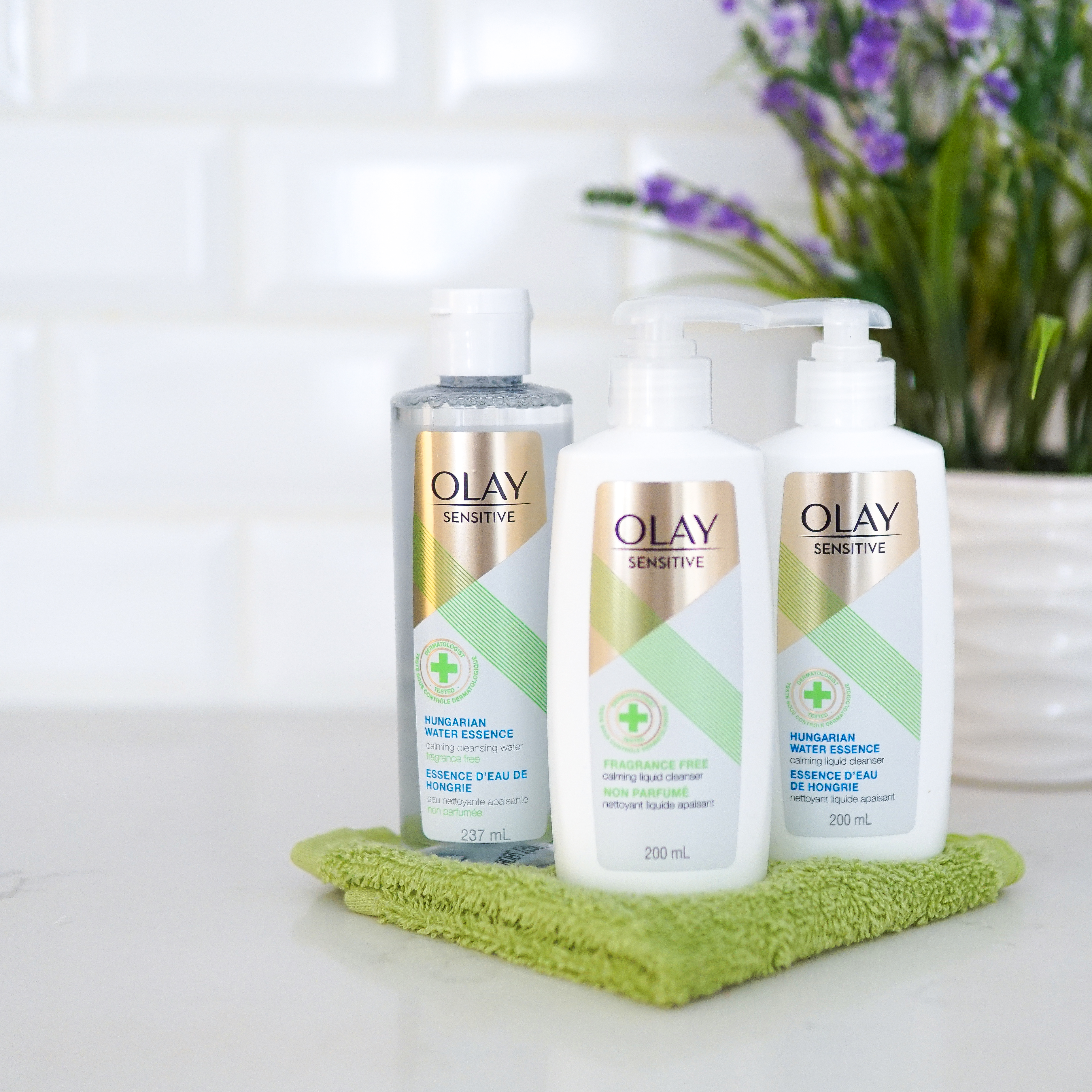Feeling sensitive? You’re not alone. 72% of Canadian women believe they have sensitive skin, and more and more, products designed for sensitive skin are the most important consideration (second only to anti-aging) when selecting a skin care regimen.
However, how is sensitive skin defined? Unfortunately, there really isn’t a clear answer; symptoms tend to vary from person-to-person and reactions can be unpredictable! I tend to flare (redness, bumps and itching) when products contain too many harsh ingredients, while my mom’s skin reacts based on certain foods. We’re both equally sensitive in different ways!
Sounds like you? Here are five ways to stay ahead of sensitive skin:
1. Identify Your Triggers
Are there environmental, emotional or dietary triggers that cause your sensitive skin to flare? How easily is your skin irritated following contact with skin care products, makeup, or even UV rays? Keep an ongoing diary (with photographic evidence) to uncover patterns of skin reactions that can help identify your triggers. Sometimes it’s nearly impossible to identify one thing in particular; sensitive skin can simply be the result of a combination of elements working against you. (It happens, no need to be stress about it!)
2. Read Labels
One of the best ways to stay ahead of sensitive skin is to ensure that you’re using the right products for your skin type. Make a habit of reading labels every time, even if you’ve purchased the product before; a simple change in just one or two minor ingredients can set off an unexpected skin reaction. And, definitely stay away from artificial dyes and fragrances – two of the most popular skin irritants.

3. Start with the Right Cleanser
A challenging aspect for people with sensitive skin is finding a cleanser that can effectively remove oil, makeup and impurities without stripping and/or irritating the skin. Did you know that only 11% of cleansers are made specifically for sensitive skin? The best cleanser is one that calms dry, stressed skin and helps to fortify the skin’s surface over time, such as Olay’s Calming Liquid Fragrance-Free Cleanser. Olay’s entire sensitive cleansing collection was made to provide immediate relief and long term skin improvement, and is full of ingredients proven by dermatologists to fight redness and irritation. It’s also free of dyes and soaps, and harsh surfactants!
4. Stick with the Program
The thing about sensitive skin is it just doesn’t go away. Although your triggers may increase, decrease or evolve over time, sensitive skin tends to be consistently sensitive. Sticking with a skin care regimen that works for you, and using the products regularly, is one of the best ways to ensure that you don’t experience an unexpected flare up of symptoms. There’s nothing worse that starting from square one when trying to get redness and irritation under control – trust me, I’ve been there!

5. Use Brands You Trust
Especially when you have sensitive skin, the last thing you want to do is jump from product to product or invest in trendy brands with even trendier ingredients. There are many products that claim to be safe for sensitive skin, but is your cleanser specifically designed for it? This is where the reputation of the skin care brand is paramount. I only purchase products from companies that are trusted in the skin care industry by professionals and consumers alike, and that’s why I’m excited about Olay Sensitive Collection.
Olay is a brand that has been trusted by my mother (and my grandmother before her), and after using Olay Sensitive Calming Fragrance-Free Liquid Cleanser for two weeks consistently, I’m so pleased to say that my sensitive skin has taken to it beautifully. Most importantly, my skin feels soft, smooth and visibly calm with zero redness/ irritation.
It’s not always easy being sensitive. Stay ahead of your symptoms with these five simple steps, and if you have sensitive skin, be sure to leave your own tips for coping in the comments!
And remember, if you suspect your sensitive skin may actually be more than skin deep – such as skin irritation caused by rosacea, eczema or an allergic reaction – it’s important to see a dermatologist.
For more information on the Olay Sensitive Collection, visit olay.ca.
This post is sponsored by Olay. The opinions on this blog, as always, are my own.
Leave a Reply